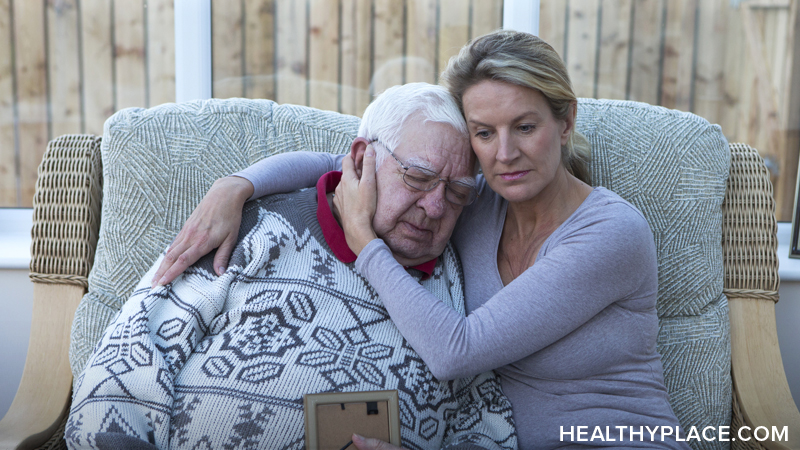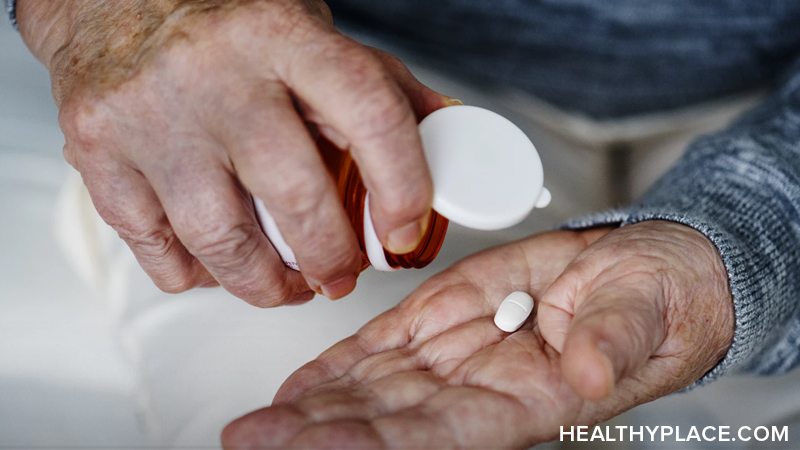ADHD References
Children
What Is ADD and ADHD? ADD, ADHD Definition
- ADD and ADHD Center: Symptoms, Types, Causes, Tests, and Treatments. (n.d.).WebMD. Retrieved August 9, 2011, from http://www.webmd.com/add-adhd/default.htm
- NIMH. Attention Deficit Hyperactivity Disorder (ADHD). (n.d.).NIMH Home. Retrieved August 9, 2011, from http://www.nimh.nih.gov/health/publications/attention-deficit-hyperactivity-disorder/complete-index.shtml
- Neurodevelopmental Disorders. (n.d.). APA. Retrieved August 7, 2013, from www.dsm5.org/Documents/ADHD%20Fact%20Sheet.pdf
- Understanding the DSM V - Applied Techniques Training Sue Suchocki 0447 115 - 928. (n.d.). Applied Techniques Training Sue Suchocki 0447 115 - 928 - Home. Retrieved August 7, 2013, from http://www.appliedtechniques.net/understanding-the-dsm-v.html
Types of ADHD: Inattentive Type, Hyperactive Type, Combined Type
- Attention-deficit/hyperactivity disorder (ADHD): Symptoms - MayoClinic.com. (n.d.).Mayo Clinic. Retrieved August 9, 2011, from http://www.mayoclinic.com/health/adhd/DS00275/DSECTION=symptoms
- FASTSTATS - Attention Deficit Hyperactivity Disorder.(n.d.).Centers for Disease Control and Prevention. Retrieved August 9, 2011, from http://www.cdc.gov/nchs/fastats/adhd.htm
- Types of ADHD: Inattentive, Hyperactive, and Combined Types. (n.d.).WebMD. Retrieved August 9, 2011, from http://www.webmd.com/add-adhd/guide/types-of-adhd
- Diagnosing ADHD: Changing Criteria in the DSM-V. (n.d.). Attention Deficit Disorder | ADHD Symptoms, Medication, Treatment, Diagnosis, Parenting ADD Children and More: Information from ADDitude. Retrieved August 8, 2013, from http://www.additudemag.com/adhdblogs/7/9837.html
- Understanding the DSM V - Applied Techniques Training Sue Suchocki 0447 115 928. (n.d.). Applied Techniques Training Sue Suchocki 0447 115 928 - Home. Retrieved August 8, 2013, from http://www.appliedtechniques.net/understanding-the-dsm-v.html
How Do You Get ADHD? Cause of ADD and ADHD
- FASTSTATS - Attention Deficit Hyperactivity Disorder.(n.d.).Centers for Disease Control and Prevention. Retrieved August 11, 2011, from http://www.cdc.gov/nchs/fastats/adhd.htm
- Kutscher, M. L., & MD.(n.d.).Neuroscience for Kids - ADHD.UW Faculty Web Server. Retrieved August 11, 2011, from http://faculty.washington.edu/chudler/adhd.html
- NIMH Attention Deficit Hyperactivity Disorder (Easy-to-Read).(n.d.).NIMH Home. Retrieved August 11, 2011, from http://www.nimh.nih.gov/health/publications/attention-deficit-hyperactivity-disorder-easy-to-read/index.shtml
- Very Low Birthweight Children Have Long-Term Behavioral And Psychiatric Consequences. (n.d.).Science Daily: News & Articles in Science, Health, Environment & Technology. Retrieved August 11, 2011, from http://www.sciencedaily.com/releases/1997/06/970606122249.htm
ADHD Symptoms: Signs and Symptoms of ADHD
- ADHD .(n.d.).KidsHealth. Retrieved August 11, 2011, from http://kidshealth.org/teen/diseases_conditions/learning/adhd.html
- Symptoms of ADHD/ADD (Attention Deficit Hyperactivity Disorder).(n.d.).WebMD. Retrieved August 11, 2011, from http://www.webmd.com/add-adhd/guide/adhd-symptoms
- Symptoms of Adult ADHD vs. ADHD in Children .(n.d.).CONCERTA® - ADHD Medication to Treat ADHD Symptoms in Children and Adults. Retrieved August 11, 2011, from http://www.concerta.net/adult/adhd-symptoms-adult-adhd-vs-adhd-in-children.html
How to Diagnose ADHD: The ADHD Assessment
- ADHD Misdiagnosis: 10 Medical Conditions Commonly Mistaken For Attention-Deficit Hyperactivity Disorder. (n.d.).Breaking News and Opinion on The Huffington Post. Retrieved August 12, 2011, from http://www.huffingtonpost.com/2011/06/20/adhd-misdiagnosis_n_880632.html
- Diagnosing ADHD: Tests for Kids and Adults.(n.d.).WebMD. Retrieved August 12, 2011, from http://www.webmd.com/add-adhd/guide/diagnosing-adhd
- Diagnosing ADHD: Tests for Kids and Adults.(n.d.).WebMD. Retrieved August 12, 2011, from http://www.webmd.com/add-adhd/guide/diagnosing-adhd
ADD Help: Where to Get Help for ADHD
- ADHD in children - how to get help.(n.d.).Netdoctor: Private Healthcare Guide. Retrieved August 13, 2011, from http://netdoctor.privatehealth.co.uk/surgery-and-treatments/paediatrics/guide/adhd-in-children/
- M.A., E. J. (n.d.). Getting Help for Children with ADD / ADHD | Education.com. Education.com | An Education & Child Development Site for Parents | Parenting & Educational Resource. Retrieved August 13, 2011, from http://www.education.com/reference/article/Ref_Getting_Help/
- NIMH • Attention Deficit Hyperactivity Disorder (Easy-to-Read).(n.d.).NIMH • Home. Retrieved August 13, 2011, from http://www.nimh.nih.gov/health/publications/attention-deficit-hyperactivity-disorder-easy-to-read/index.shtml#pub6
ADHD Treatments: Treatment for Attention Deficit Disorder
- Attention-deficit/hyperactivity disorder (ADHD): Treatments and drugs - MayoClinic.com. (n.d.).Mayo Clinic. Retrieved August 13, 2011, from http://www.mayoclinic.com/health/adhd/DS00275/DSECTION=treatments-and-drugs
- NIMH - Attention Deficit Hyperactivity Disorder (ADHD). (n.d.).NIMH • Home. Retrieved August 13, 2011, from http://www.nimh.nih.gov/health/publications/attention-deficit-hyperactivity-disorder/complete-index.shtml#pub5 in, c. w. (n.d.).
- Clinical Practice Guideline: Treatment of the School-Aged Child With Attention-Deficit/Hyperactivity Disorder -- Subcommittee on Attention-Deficit/Hyperactivity Disorder and Committee on Quality Improvement 108 (4): 1033 -- AAP Policy. AAP Policy - Journal of the American Academy of Pediatrics. Retrieved August 13, 2011, from http://aappolicy.aappublications.org/cgi/content/full/pediatrics%3B108/4/1033
ADHD Therapy: ADD, ADHD Therapy for Children
- Attention-deficit/hyperactivity disorder (ADHD): Treatments and drugs - MayoClinic.com. (n.d.). Mayo Clinic. Retrieved August 31, 2011, from http://www.mayoclinic.com/health/adhd/DS00275/DSECTION=treatments-and-drugs
- Behavior Therapy Plan, Techniques, Charts For Children With Adhd Problems. (n.d.). Helping ADD ADHD Teenagers and Children. Parenting Skills for ADD and ADHD. Retrieved August 31, 2011, from http://www.adhdchildparenting.com/behaviour-therapy-techniques-adhd.php
- NIMH • Attention Deficit Hyperactivity Disorder (ADHD). (n.d.). NIMH • Home. Retrieved August 31, 2011, from http://www.nimh.nih.gov/health/publications/attention-deficit-hyperactivity-disorder/complete-index.shtml
ADHD Medications: How ADHD Medicines Benefit Children with ADHD
- Adhd Drugs | PBS - Medicating Kids | FRONTLINE | PBS. (n.d.). PBS: Public Broadcasting Service. Retrieved September 1, 2011, from http://www.pbs.org/wgbh/pages/frontline/shows/medicating/drugs/
- Choosing the Right ADHD Medication for Your Child. (n.d.). WebMD. Retrieved September 1, 2011, from http://www.webmd.com/add-adhd/features/choosing-adhd-medication-child?page=2
- NIMH • Attention Deficit Hyperactivity Disorder (ADHD). (n.d.). NIMH. Retrieved September 1, 2011, from http://www.nimh.nih.gov/health/publications/attention-deficit-hyperactivity-disorder/complete-index.shtml
Natural Remedies for ADHD: Alternative Treatments for ADHD
- ADHD Alternative Treatments: Feingold Diets, Supplement, and More. (n.d.). WebMD. Retrieved September 2, 2011, from http://www.webmd.com/add-adhd/guide/adhd-alternative-treatments
- Attention deficit hyperactivity disorder - Other Treatments. (n.d.). University of
- Maryland Medical Center | Home. Retrieved September 2, 2011, from
- http://www.umm.edu/patiented/articles/some_alternative_approaches_attention-
- deficit_hyperactivity_disorder_000030_10.htm
ADHD Cure: Is There a Cure for ADD?
- ADHD Alternative Treatments: Feingold Diets, Supplement, and More. (n.d.). WebMD. Retrieved September 2, 2011, from http://www.webmd.com/add-adhd/guide/adhd-alternative-treatments
- Attention deficit hyperactivity disorder - Other Treatments. (n.d.). University of Maryland Medical Center | Home. Retrieved September 2, 2011, from http://www.umm.edu/patiented/articles/some_alternative_approaches_attention-deficit_hyperactivity_disorder_000030_10.htm
- NIMH • Attention Deficit Hyperactivity Disorder (ADHD). (n.d.). NIMH . Retrieved September 2, 2011, from http://www.nimh.nih.gov/health/publications/attention-deficit-hyperactivity-disorder/complete-index.shtml
- Rodriguez, D. (n.d.). Treating ADHD - ADD/ADHD Center - Everyday Health. EverydayHealth.com. Retrieved September 2, 2011, from http://www.everydayhealth.com/adhd/adhd-treatment.aspx
ADHD Support for Parents of ADD, ADHD Children
- Attention Deficit Disorder Association. (n.d.). Attention Deficit Disorder Association. Retrieved September 3, 2011, from http://www.add.org/
- CHADD Live | Home Page. (n.d.). CHADD Live | Home Page. Retrieved September 3, 2011, from http://www.chadd.org/
- Ph.D., M. N. (n.d.). The Value Support Groups for Parents of ADHD Children | ADDitude - ADHD Information & Resources. Attention Deficit Disorder | ADHD Symptoms, Medication, Treatment, Diagnosis, Parenting ADD Children and More: Information from ADDitude. Retrieved September 3, 2011, from http://www.additudemag.com/adhd/article/2535.html
Adults
What Is Adult ADHD? Adult Attention Deficit Disorder
- ADHD in Adults.(n.d.).eMedicineHealth. Retrieved August 20, 2011, from www.emedicinehealth.com/adhd_in_adults/article_em.htm
- Gentile, MD, J. P. (n.d.).Adult ADHD.National Center for Biotechnology Information. Retrieved August 20, 2011, from
Adult ADD, ADHD Symptoms and Their Impact
- ADHD in Adults: Symptoms, Statistics, Causes, Types, Treatments, and More. (n.d.).WebMD - Better information. Better health.. Retrieved August 20, 2011, from http://www.webmd.com/add-adhd/guide/adhd-adults
- Adult ADHD (attention-deficit/hyperactivity disorder): Symptoms - MayoClinic.com. (n.d.).Mayo Clinic. Retrieved August 20, 2011, from http://www.mayoclinic.com/health/adult-adhd/DS01161/DSECTION=symptoms
- The basics of Adult ADD/ADHD.(n.d.).VAXA Offers Homeopathic Medicine, Herbal Products, Vitamins and Supplements. Retrieved August 20, 2011, from http://www.vaxa.com/add-adult.cfm
Adult ADHD Help: Where to Get Help for Adult ADD
- ADHD in Adults.(n.d.).FamilyDoctor.org. Retrieved August 21, 2011, from familydoctor.org/online/famdocen/home/common/mentalhealth/kids/636.printerview.html
- Getting help.(n.d.).NetDoctor.co.uk - The UK's leading independent health website. Retrieved August 21, 2011, from http://www.netdoctor.co.uk/adhd/gettinghelp.htm
- Searight, Ph.D., H. R., Burke, Pharm.D., J. M., & M.D., F. R. (n.d.). Adult ADHD: Evaluation and Treatment in Family Medicine - November 1, 2000 - American Family Physician. Home Page -- American Academy of Family Physicians. Retrieved August 21, 2011, from http://www.aafp.org/afp/20001101/2077.html
Adult ADD, ADHD Testing and Diagnosis
- Adult ADHD: Evaluation and Treatment in Family Medicine - November 1, 2000 - American Family Physician. (n.d.).Home Page -- American Academy of Family Physicians. Retrieved August 22, 2011, from http://www.aafp.org/afp/20001101/2077.html
- Antonio, P. S., TX, 1996.,& 2001. (n.d.).Brown ADD Rating Scales and Diagnostic Forms for Assessing ADHD and Related Problems.A New Understanding of Attention Deficit Disorder (ADHD/ADD) from Dr. Thomas E. Brown. Retrieved August 22, 2011, from http://www.drthomasebrown.com/assess_tools/index.html
- Getting help.(n.d.).NetDoctor.co.uk - The UK's leading independent health website. Retrieved August 22, 2011, from http://www.netdoctor.co.uk/adhd/gettinghelp.htm
- Product - Conners Adult ADHD Rating Scales (CAARS). (n.d.).Welcome to Pearson Assessments & Information / Clinical Assessments. Retrieved August 22, 2011, from http://psychcorp.pearsonassessments.com/HAIWEB/Cultures/en-us/Productdetail.htm?Pid=PAg111&Mode=summary
Treatment of Adult ADHD
- ADHD in Adults.(n.d.).emedicinehealth.com. Retrieved January 22, 2011, from www.emedicinehealth.com/adhd_in_adults/page8_em.htm
- Adult ADHD: Evaluation and Treatment in Family Medicine - November 1, 2000 - American Family Physician. (n.d.).Home Page -- American Academy of Family Physicians. Retrieved August 22, 2011, from http://www.aafp.org/afp/20001101/2077.html
- NIMH • Attention Deficit Hyperactivity Disorder (ADHD). (n.d.).NIMH Home. Retrieved August 22, 2011, from http://www.nimh.nih.gov/health/publications/attention-deficit-hyperactivity-disorder/complete-index.shtml
Finding Adult ADHD Doctors Who Know How to Treat Adult ADHD
- 10 Questions to Ask Your Doctor About Adult ADHD. (n.d.).WebMD - Better information. Better health.. Retrieved August 23, 2011, from http://www.webmd.com/add-adhd/adhd-treatment-in-adults-10-questions
- Attention Deficit Hyperactivity Disorder (ADHD) in Adults. (n.d.).Cleveland Clinic.Retrieved August 23, 2011, from http://my.clevelandclinic.org/disorders/attention_deficit_hyperactivity_disorder/hic_attention_deficit_hyperactivity_disorder_adhd_in_adults_2.aspx
- Find a Doctor - Revolution Health. (n.d.).Revolution Health - Start your Revolution - Revolution Health. Retrieved August 23, 2011, from http://www.revolutionhealth.com/doctors
- A reference service with many doctors who treat adult ADHD.
- M.D., D. K. (n.d.).How to Get Help for Adult ADHD - ADHD Blog.Health Information, Resources, Tools & News Online - EverydayHealth.com . Retrieved August 23, 2011, from http://www.everydayhealth.com/blog/a-doctors-personal-take-on-adhd/how-to-get-help-for-adult-adhd/
Do Adult ADHD Natural Treatments, Natural Remedies Work?
- ADHD Alternative Treatments: Feingold Diets, Supplement, and More. (n.d.).WebMD - Better information. Better health. Retrieved August 23, 2011, from http://www.webmd.com/add-adhd/guide/adhd-alternative-treatments
- Complementary and Alternative Medicine for ADHD: Do Natural Remedies Really Work? - Adult ADHD - Health.com. (n.d.).Health.com: Health News, Wellness, and Medical Information. Retrieved August 23, 2011, from http://www.health.com/health/condition-article/0,,20252301,00.html
Managing Adult ADD, ADHD at Work
- Adult ADHD at Work: Tips for Organization and Control. (n.d.).WebMD - Better Information. Better health. Retrieved August 24, 2011, from http://www.webmd.com/add-adhd/guide/adhd-in-the-workplace
- Adult ADHD at Work: Tips for Organization and Control. (n.d.).WebMD - Better Information. Better health. Retrieved August 24, 2011, from http://www.webmd.com/add-adhd/guide/adhd-in-the-workplace?page=2
- Managing ADHD at Work.(n.d.).CONCERTA® - ADHD Medication to Treat ADHD Symptoms in Children and Adults. Retrieved August 24, 2011, from http://www.concerta.net/adult/adhd-strategies-manage-adhd-at-work.html
ADD and Relationships: How Adult ADHD Affects Relationships
- ADHD in Marriage and Romantic Relationships.(n.d.).WebMD - Better information. Better health.. Retrieved August 24, 2011, from http://www.webmd.com/add-adhd/guide/adhd-in-marriage-and-romantic-relationships
- Jr., Ph.D, R. A. (n.d.).Solutions for Intimacy Problems for Adults with ADHD.Solutions for Intimacy Problems for Adults with ADHD. Retrieved January 24, 2011, from https://www.adda-sr.org/reading/Articles/solutionsforitimacy-austin.htm
- Halverstadt, J. (n.d.). ADD Relationships: 10+ Tools for Lasting Love | Adult ADD Dating, Relationships, Love, Sex, Marriage - ADDitude. Attention Deficit Disorder | ADHD Symptoms, Medication, Treatment, Diagnosis, Parenting ADD Children and More: Information from ADDitude. Retrieved August 24, 2011, from http://www.additudemag.com/adhd/article/7504.html
Adult ADHD Therapy - Could It Help You?
- Jacobs, C., & Ph.D, MSCP, I. W. (n.d.). Types of Psychotherapy - Adult ADD/ADHD. Netplaces. Retrieved August 31, 2011, from http://www.netplaces.com/adult-add-adhd/exploring-the-benefits-of-talk-therapy/types-of-psychotherapy.htm
- Smith, A. (n.d.). Medical News: Cognitive Behavioral Therapy Improves Adult ADHD - in Psychiatry, ADHD/ADD from MedPage Today. Medical News and Free CME from MedPage Today. Retrieved August 31, 2011, from http://www.medpagetoday.com/Psychiatry/ADHD-ADD/21847
- Treating Adult ADHD With Therapy: Finding the Right Therapist. (n.d.). WebMD. Retrieved August 31, 2011, from http://www.webmd.com/add-adhd/features/adult-adhd-therapy-finding-right-therapist
ADHD Coaching: How Can ADD, ADHD Coaches Help You?
- Criteria for Professional Membership in the ACO. (n.d.). ADHD Coaches Organzation. Retrieved September 1, 2011, from http://www.adhdcoaches.org/professional-membership/Institute for the Advancement of AD/HD Coaching - IAAC Directory. (n.d.).
- Institute for the Advancement of AD/HD Coaching. Retrieved September 1, 2011, from
- http://www.adhdcoachinstitute.org/joom2/component/option,com_sobi2/Itemid,191/International Coach Federation. (n.d.).
- International Coach Federation. Retrieved September 1, 2011, from http://www.coachfederation.org/icfcredentials/become-credentialed/
- Jacobs, C., & Ph.D. MSCP, I. W. (n.d.).
ADHD Drugs and How ADHD Drug Treatment Helps ADHD Adults
- ADHD in Adults: Symptoms, Statistics, Causes, Types, Treatments, and More. (n.d.). WebMD. Retrieved September 1, 2011, from http://www.webmd.com/add-adhd/guide/adhd-adults?page=2
- Searight, Ph.D., H. R. (n.d.). Adult ADHD: Evaluation and Treatment in Family Medicine - November 1, 2000 - American Family Physician. Home Page -- American Academy of Family Physicians. Retrieved September 1, 2011, from http://www.aafp.org/afp/20001101/2077.html
- The Pros and Cons of Strattera for ADHD: A Nonstimulant Medication Option - Adult ADHD - Health.com. (n.d.). Health.com: Health News, Wellness, and Medical Information. Retrieved September 1, 2011, from http://www.health.com/health/condition-article/0,,20252272,00.html
Adult ADHD Support
- ADHD Resource Center - ADHDsupport.com. (n.d.). ADHD Information and Support for Adults and Parents of Children with ADHD ADHDsupport.com. Retrieved September 5, 2011, from http://www.adhdsupport.com/adhd-resources.aspx
- Attention Deficit Disorder Association. (n.d.). Attention Deficit Disorder Association. Retrieved September 5, 2011, from http://www.add.org/
- CHADD Live | Home Page. (n.d.). CHADD Live | Home Page. Retrieved September 3, 2011, from http://www.chadd.org/
- Ph.D., M. N. (n.d.). The Value Support Groups for Parents of ADHD Children | ADDitude - ADHD Information & Resources. Attention Deficit Disorder | ADHD Symptoms, Medication, Treatment, Diagnosis, Parenting ADD Children and More: Information from ADDitude. Retrieved September 5, 2011, from http://www.additudemag.com/adhd/article/2535.html
back to: All ADHD Articles
APA Reference
Tracy, N.
(2021, December 20). ADHD References, HealthyPlace. Retrieved
on 2025, October 25 from https://www.healthyplace.com/adhd/adhd-information/adhd-references








